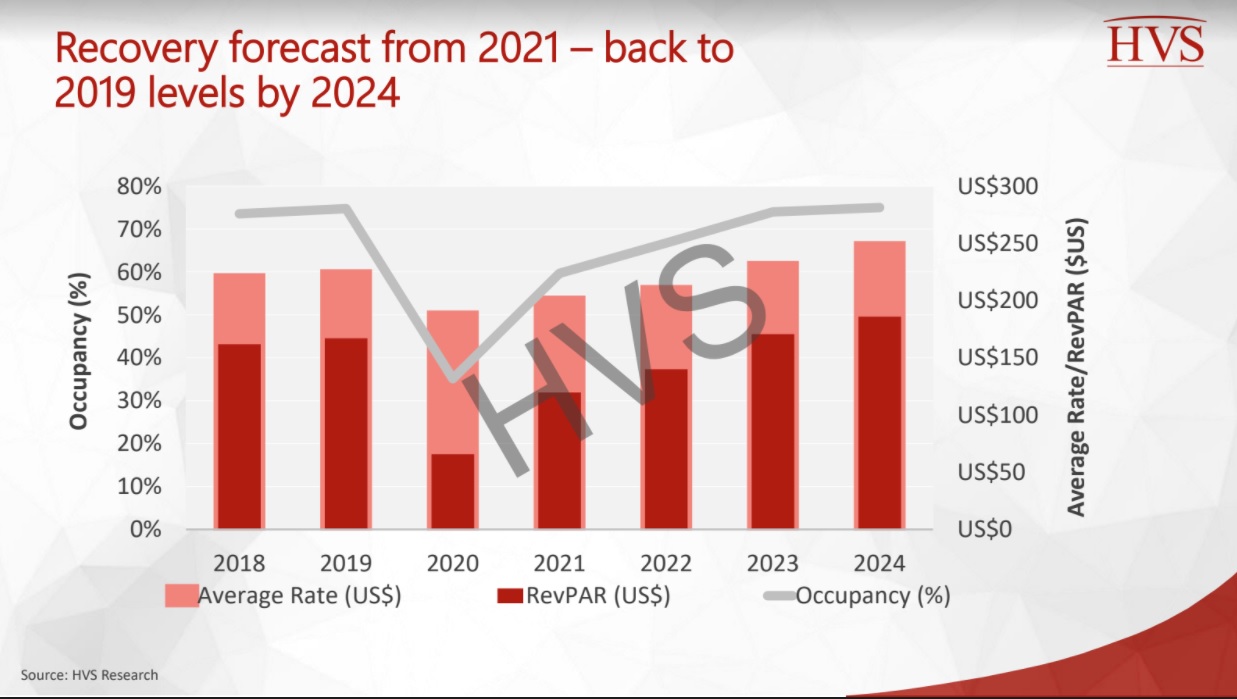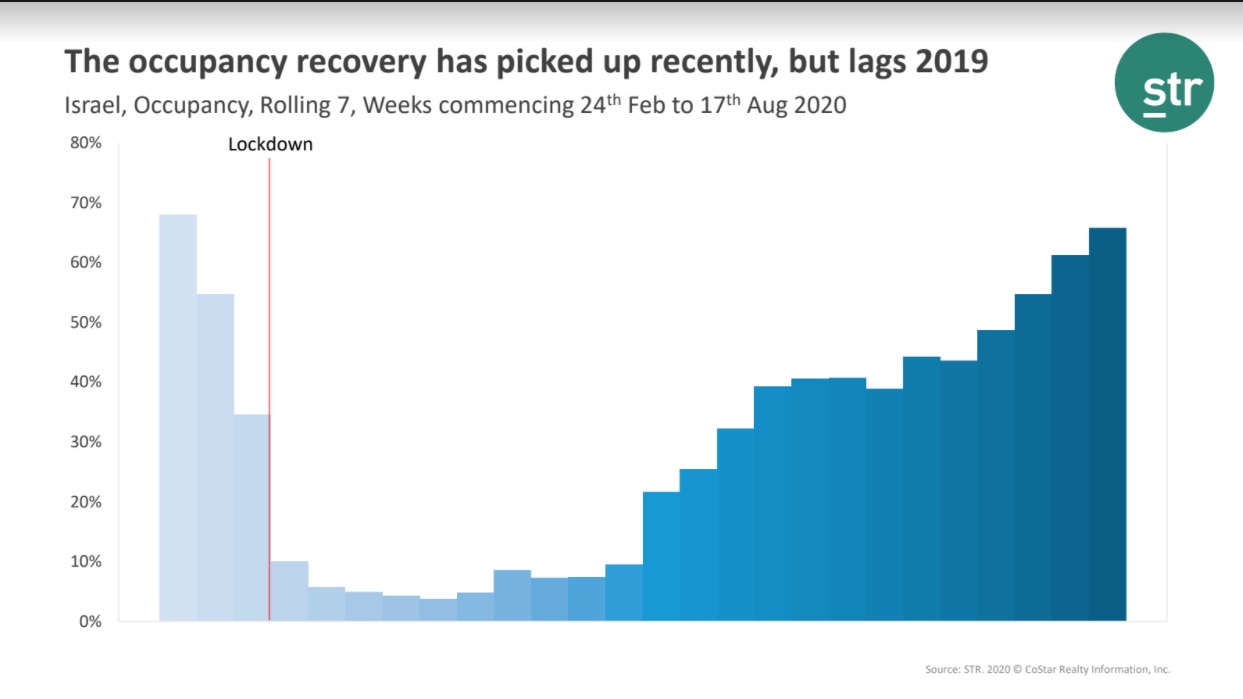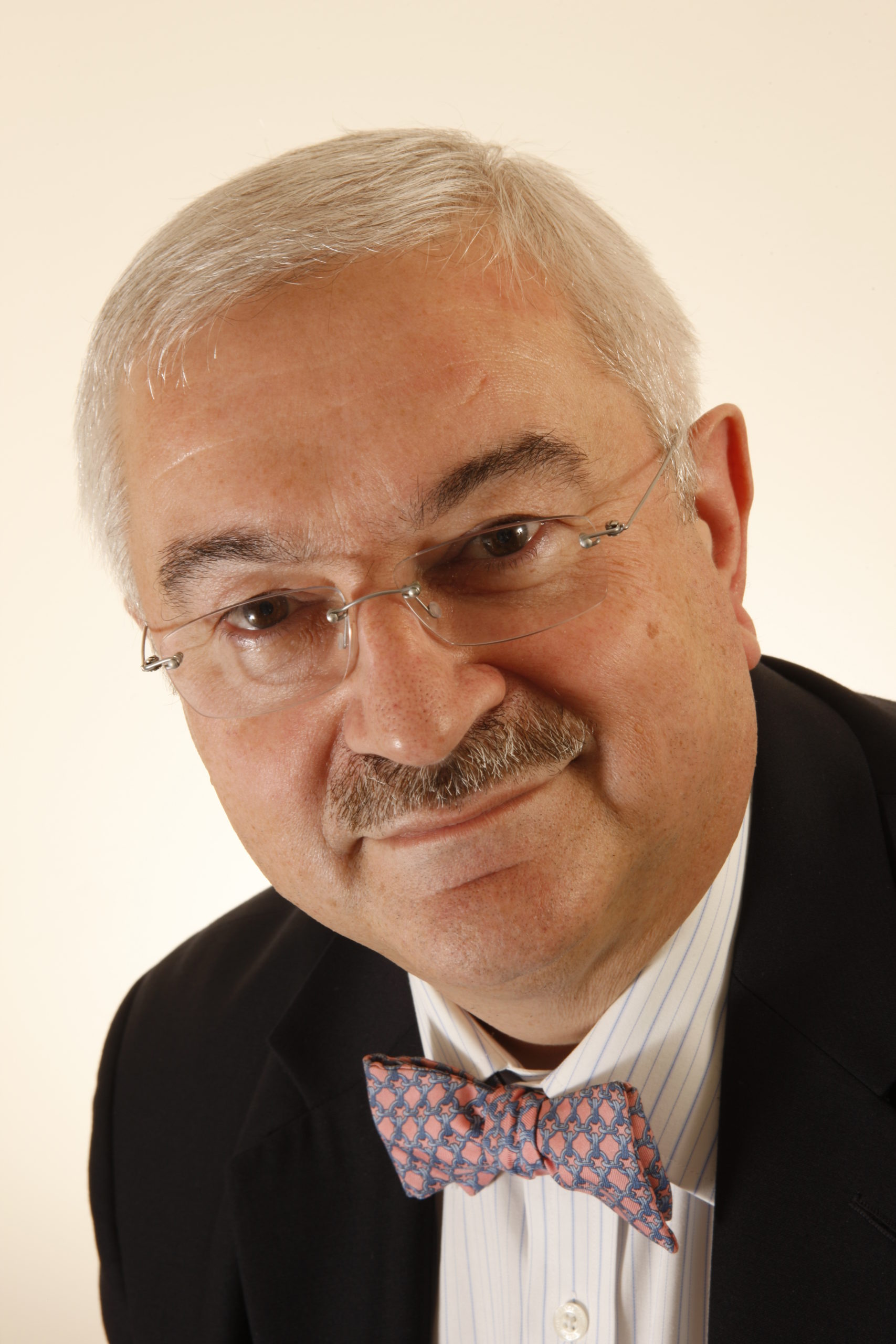But return to pre-COVID-19 levels only expected by 2024, as 35% of hotels nationwide remain shuttered
Israel’s coronavirus-battered hotel sector has shown signs of a modest recovery in recent weeks thanks to a surge in domestic tourism, industry experts say.
Russell Kett is chairman at HVS, a global consulting firm focusing exclusively on the hospitality industry. While a full revival is still a long way off, Kett believes that Israel’s hotel sector has the ability to recover at an accelerated pace when compared to other countries in the Mediterranean region.
“I always feel Israel copes with situations better than many countries because they’re used to dealing with shocks,” Kett told The Media Line. “Hotel operators have gotten used to dealing with those crises.
“This is obviously bigger and more global but I don’t expect Israeli hoteliers to suddenly lose their ability to manage well and to deal with adversity in a positive way,” he said.
There are green shoots but it’s too soon because in a global sense many airlines are still not flying. The domestic travel component is picking up but internationally we’ve yet to see the hoped-for restoration of where Israel was at the end of 2019.
In HVS’s recently published report, titled “Israel Hotel Market Overview 2020” and co-authored by Kett and Senior HVS Associate Simon Hultén, the firm predicted that Israel’s hotel values would make a gradual but accelerating recovery following the pandemic.
However, it also noted that pre-pandemic performance levels are unlikely to occur before 2024.
“There are green shoots but it’s too soon because in a global sense many airlines are still not flying,” Kett cautioned. “The domestic travel component is picking up but internationally we’ve yet to see the hoped-for restoration of where Israel was at the end of 2019.”
 [2]
[2]HVS forecasts Israeli hotels to return to pre-pandemic performance levels sometime in 2024. (HVS)
To help reach its forecast, HVS looked back at other crises that caused severe disruptions to the hospitality sector in recent years, such as 9/11. According to Kett, the recovery from that event took six years in total.
Travel and tourism play an important role in Israel’s economy, accounting for $22 billion (5.6%) to GDP for 2019 and 230,000 jobs, the HVS report stated. From 2016 to 2019, the number of tourists arriving to Israel grew from 2.9 million to a record-breaking 4.5 million visitors, respectively.
In early May and following several weeks of lockdown, Israel formulated a strategy aimed at encouraging domestic tourism while simultaneously keeping travelers safe. The “Purple Badge” standard, as it has come to be known, includes a broad range of health measures and social distancing mechanisms for establishments to follow.
Give the gift of hope
We practice what we preach:
accurate, fearless journalism. But we can't do it alone.
- On the ground in Gaza, Syria, Israel, Egypt, Pakistan, and more
- Our program trained more than 100 journalists
- Calling out fake news and reporting real facts
- On the ground in Gaza, Syria, Israel, Egypt, Pakistan, and more
- Our program trained more than 100 journalists
- Calling out fake news and reporting real facts
Join us.
Support The Media Line. Save democracy.
But for some hotel owners, especially those that are reliant on international travelers, reopening while Israel’s skies are closed to foreign nationals is a fool’s errand.
Many have opted to wait with reopening until they can do so profitably.
In fact, the Israel Hotels Association told The Media Line that 35% of hotels across the country are currently closed and have been since the pandemic first hit the country, representing a loss of hundreds of millions of dollars in revenue.
Nevertheless, Kett remains optimistic.
“The hotel industry in Israel is very resilient and travelers are resilient and have short memories,” he contended. “We get over things. We get over shocks and pains and we move on. I’m obviously hopeful that human nature being what it is, we will again get used to travel and staying at hotels and feel good about it.”
Other industry insiders agreed that hoteliers would be able to weather the crisis in the long run.
“I think it’s going to be a long road to recovery to get back to where we were as an industry in terms of overall demand but I think we’ll get there,” Thomas Emanuel, director of the international STR market research firm, told The Media Line. “People will still want to travel, experience and meet.”
Emanuel called the pandemic “unprecedented” for the hospitality industry and emphasized that occupancy rates dipped to below 10% after the Israeli government imposed a full lockdown in March. As with HVS, STR’s data also shows that the negative trend has reversed itself in recent weeks as more and more Israelis choose to go on holiday domestically in a bid to avoid quarantines and stringent international travel restrictions.
“Since then, we’ve seen actually pretty decent occupancy recovery across Israel as a whole,” Emanuel affirmed. “Although it’s behind where it was last year of course and it’s also being driven by domestic leisure.”
 [5]
[5]STR’s data show how occupancy rates declined steeply following lockdown and have only recently begun to recover. (STR)
Eilat—popular among local travelers—has surpassed expectations and is doing quite well, but Emanuel warned that domestic tourism might not be enough to sustain the hotel sector after the summer season ends.
Tel Aviv and Jerusalem for instance, which are more heavily reliant on international and business travelers, have lagged behind in terms of occupancy rates. For this reason, the two cities are expected to experience slower recoveries than other parts of the country.
At the moment, hotels that are open have had to pivot to accommodate Israeli guests and ensure that they feel secure from a cleanliness and health perspective. Buffet breakfasts—long popular with Israeli travelers—are a thing of the past due to strict social distancing regulations.
“Until we get back to normal, domestic is going to be king,” he said. “We’re still in the infancy of this.”
One of the most promising notes in STR’s data is that major hotel construction projects in Israel appear to still be moving forward despite COVID-19. The same cannot be said of other countries, where opening dates have been pushed back due to a lack of demand.
“Our pipeline database is still robust for Israel,” Emanuel confirmed. “If all of the hotels that are in our database open, we’re looking at supply increasing by 31% across the country. We haven’t so far seen big changes to that.”
Kett and Emanuel spoke to The Media Line on the sidelines of a webinar titled “The Path to Recovery – Focus on the Israel Hotel Sector,” which took place last week.
Initiated by Israel’s Tourism Ministry and HVS London, over 300 Israeli and foreign entrepreneurs, executives, property owners and real estate agents took part in the virtual event. Among the participants were entrepreneurs from the United Arab Emirates, according to event organizers.
Lorin Maugery, head of Foreign Investor Relations at Israel’s Tourism Ministry, told The Media Line that he was “very surprised” by the revival of Israel’s hotel sector in the past month. He also revealed that a growing number of foreign investors have been approaching him with requests in recent weeks.
“I’ve been receiving quite a few requests for ‘glamping’ in the Negev, hotels in the north, or in some cities that are … more spread out around the country,” Maugery said. “There are some very creative projects.”
Glamping, a portmanteau of the words “glamorous” and camping,” refers to a popular trend that combines traditional camping with luxury amenities such as tent cabins, treehouses, pods or vintage caravans, to name a few examples.
Maugery said that investors from the United States, South Africa, Europe, France and also from within Israel are currently looking to take advantage of creative new opportunities that have presented themselves during the coronavirus crisis.
“I think there’s a slowdown but overall there are still quite a lot of requests for grants,” Maugery related. “Some people are looking for opportunities in places that you wouldn’t think of at first.”



